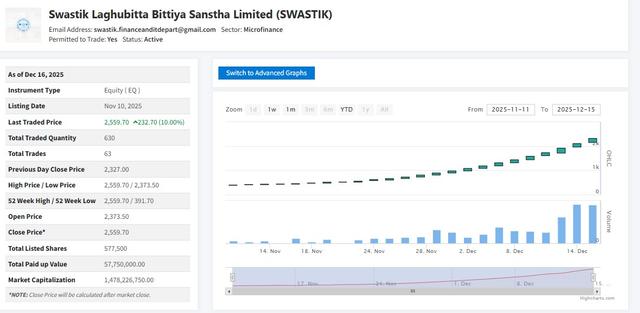Nepal Rastra Bank Issues New CSR Guidelines
Author
NEPSE TRADING

Nepal Rastra Bank (NRB) has issued new guidelines to regulate the Corporate Social Responsibility (CSR) spending of banks and financial institutions (BFIs). The previously introduced CSR Guidelines 2081 have been amended and reintroduced as CSR Guidelines 2082. According to NRB, this revision aims to make CSR spending fair, transparent, and more targeted toward underprivileged communities.
As per the provision, banks and financial institutions must allocate at least 1% of their profit into the CSR fund. The new rule requires that at least 60% of the deposited CSR amount be spent within the same fiscal year. This ensures timely utilization of the funds so that the benefits reach the intended communities without delay.
CSR spending must prioritize the poor, disadvantaged, and marginalized groups. The fund is to be used in areas such as education, health, environment, financial literacy, and activities aligned with the Sustainable Development Goals (SDGs). Additionally, reconstruction of school buildings in disaster-affected areas can also be included under CSR spending.
The new guideline also allows providing fellowships and research grants for students from low-income families pursuing postgraduate, MPhil, or PhD studies in economics, law, and management faculties. In the health sector, support can be extended to free cataract surgeries, medical camps, and distribution of nutritious food to underprivileged children, pregnant women, and lactating mothers.
However, the guidelines strictly prohibit using CSR funds for brand promotion or market expansion of the institution. Expenses on advertisements, rallies, sponsorships, political activities, or profit-making events cannot be accounted for as CSR. Similarly, providing donations or gifts to individuals linked with founders, directors, or senior management, under the name of philanthropy, will not be considered CSR spending.
Each bank or financial institution must submit its half-yearly CSR spending plan to NRB at least 15 days before the start of the half-year period. For identifying the target groups, BFIs can also rely on reports and statistics published by the government or international organizations.
NRB has clarified that if CSR funds are misused in areas outside the targeted groups, or spent for employees’ personal benefit or private projects, action will be taken under the Bank and Financial Institutions Act, 2073. The central bank believes that the new guidelines will make CSR spending more transparent, effective, and purpose-driven.



